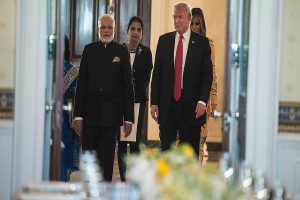In a significant crackdown on insurgent activities, three members of the banned Hynniewtrep National Liberation Council (HNLC) were arrested on Tuesday night in Meghalaya.
The individuals apprehended have been identified as Cyfrank Paul Pariat, who is recognized as a senior HNLC cadre and leader of a sleeper cell, along with Kitbok Mujai and Barnabas Lyngdoh.
Advertisement
According to the police, the arrested members were actively involved in the operations of a sleeper cell, which served multiple demand notes on behalf of the HNLC.
These notes coerced individuals to pay extortion amounts under the threat of severe repercussions, thereby instilling fear and exerting control over the local population.
A case has been registered against the arrested individuals, and further investigations are underway to uncover additional linkages to other members or associates of the HNLC.
Police has issued a general appeal to the public, urging them not to succumb to the illegal demands of the HNLC.
The police encouraged citizens to report any illegal contact or demands to the police immediately, emphasizing the importance of community cooperation in combating insurgent activities.
In response to the arrests, Meghalaya Deputy Chief Minister in charge of Home (Police) Prestone Tynsong made a public appeal to the Hynniewtrep National Liberation Council (HNLC) to resume peace talks.
Tynsong stated that the door for negotiation and discussion remains open for HNLC members, expressing the government’s willingness to engage in dialogue for the sake of peace and stability in the region.
Speaking to reporters, Deputy Chief Minister Tynsong emphasized that the law will take its own course concerning any criminal activities committed by individuals, regardless of their affiliation with the HNLC.
He refrained from commenting directly on the recent arrests, reiterating that legal processes will determine the appropriate actions.











